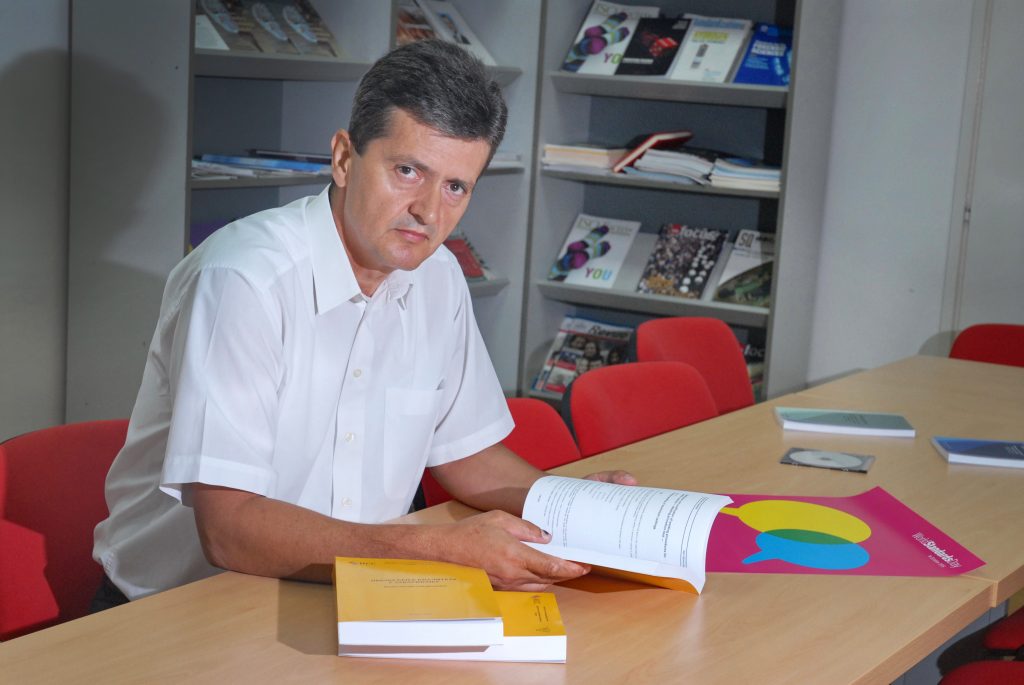Depending on the type of activity, the number of employees and other important performance and characteristics, a company may apply a certain type of standard – product, processes and/or services, management systems and conformity assessment, assessment methods, and other types of standards
There are many benefits to implementing a standard. Some of them include improving product quality, improving the organization’s performance and its greater reliability, increasing work safety and security for its employees and consumers, boosting trust and customer satisfaction, reducing costs, reducing waste and increasing efficiency, facilitating access to the latest scientific advances and techniques and compliance with relevant legislation (including EU directives).

How to choose a reliable certification body? What details should you pay attention to?
We can answer this question on the example of obtaining ISS accreditation for QMS certification activities. As you probably know, the ISS performs certification of products, management systems and persons. The very importance of the certification process for the ISS certification body lies in the promotion of standardization and raising awareness of the importance of implementing standards.
In order to select a reliable certification body or conformity assessment body, it is very important that it performs its tasks in a reliable manner, that it is competent to implement its activities and that it does so in accordance with the requirements of the relevant standards. If you want to use the services of a certain certification body, you must first determine whether that body is accredited and check whether the result of the certification comes under the scope of accreditation for which the organization received an accreditation certificate. Also, an accredited organization should have an accreditation symbol obtained from the ATS.
Can you tell us something about standardization in the Republic of Serbia in the field of circular economy?
Standardization in the field of circular economy (CE) was launched in 2019, when ISO / TC 323, Circular Economy, was established. Although this area is multidisciplinary, it was decided to establish a technical committee at the international level that will develop umbrella standards in this area. Immediately after the formation of this technical committee, the ISS held a round table discussion to inform all stakeholders and to propose to the International Organization for Standardization (ISO) areas to be standardized according to ISO/TC 323. As a result of the round table, the circular economy was added to the national commission for standards, KS Z183, which monitors the development of CE standards and which conceived the topics for standardization in the field of CE at the national level, which have also been proposed by ISO / TC 323.
The relevant national commission has appointed three experts in the working groups of the international technical committee, who have been actively working on developing standards since 2019. The ISS also cooperates with relevant institutions operating in the field of CE, such as the Chamber of Commerce and Industry of Serbia and the Ministry of Environmental Protection. In this sense, representatives of the ISS have been appointed to participate in the CE Working Group for CE, which was formed with the aim of defining the strategic framework for the development of CE through the development of the CE Programme.
“Standardization in the field of circular economy (CE) was launched in 2019, when ISO / TC 323, Circular Economy, was established”
The CE concept itself is a closed circle, with 7 phases that are managed in a controlled manner with the view of maintaining the value of products, materials and resources as high as possible while minimizing waste. The phases are sustainable procurement, eco-design, industrial symbiosis, economy and functionality, sustainable use of products, an extension of life span and management of materials and products at the end of life span. Appropriate standards already exist for each of the phases. As an example, the SRPS ISO 2040, Sustainable Procurement, is related to the first phase, and a series of environmental management standards developed within ISO/TC 207 is directly related to eco-design and industrial symbiosis.
How much has Serbia advanced in implementing standardization? Could you give us some good practice examples?
Our country stands shoulder-to-shoulder with the most developed countries in Western Europe, i.e. the EU members. This was made possible on January 1, 2017, when the ISS became the 34th full-fledged member of the European standardization organizations CEN/CENELEC. The ISS has incorporated more than 23,000 European standards into the national standardization system, or about 99%. The ISS’ mission is to make European and international standards available to its citizens as Serbian standards, as well as to bring original standards when there are no European and international standards in a certain area. Furthermore, the ISS represents and protects the interests of our country in international standardization organizations such as the International Organization for Standardization (ISO) and the International Electrotechnical Commission (IEC), of which our country has been a full-fledged member since 1950 and 1953 respectively.
In addition to the ISS’ core activity, which pertains to the development and adoption of Serbian standards, in recent years, the ISS has developed various services for its users such as training sessions, seminars/webinars on the most important and most common standards used in our country, professional assistance services in the implementation of standards, standard translation services and other services related to standards and standardization.
It is also important to note that about 1,500 experts, who come from various organizations in our country, participate in the standards commissions for the development of standards in various fields, and that they are at the source of information on the latest standards adopted at European and international level that they will apply in their organizations.